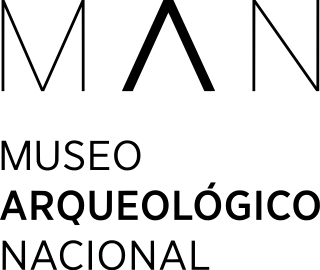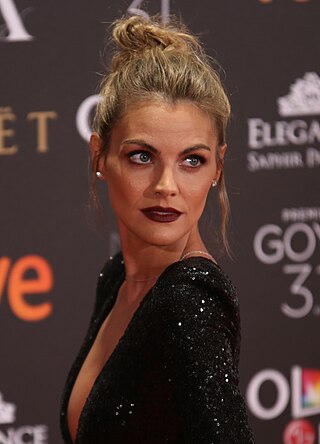
The Ecuadorian–Peruvian territorial dispute was a territorial dispute between Ecuador and Peru, which, until 1928, also included Colombia. The dispute had its origins on each country's interpretation of what Real Cedulas Spain used to precisely define its colonial territories in the Americas. After independence, all of Spain's colonial territories signed and agreed to proclaim their limits in the basis of the principle of uti possidetis juris, which regarded the Spanish borders of 1810 as the borders of the new republics. However, conflicting claims and disagreements between the newly formed countries eventually escalated to the point of armed conflicts on several occasions.

The Archaeology Museum of Pasca is an archaeological museum located in Pasca, Colombia. It houses a great collection of Pre-Columbian objects and human remains, including Muisca mummies. It has a replica of the famous golden raft, Balsa Muisca, found near this town that represents the El Dorado rite. The museum hosts a piece of Muisca textile from Belén, Boyacá. The total collection numbers 2500 pieces. Apart from the Muisca artifacts, the museum hosts material from the Tairona, Calima, Quimbaya, Sinú, San Agustín and Tierradentro, among others.

Piamonte is a town and municipality in the Cauca Department, Colombia.

The National Archaeological Museum is a archaeology museum in Madrid, Spain. It is located on Calle de Serrano beside the Plaza de Colón, sharing its building with the National Library of Spain. It is one of the National Museums of Spain and it is attached to the Ministry of Culture.

Amaia Salamanca Urízar is a Spanish actress, best known for her role as Catalina Marcos in the Spanish version of the Colombian TV series Sin tetas no hay paraíso and as Alicia Alarcón in series Gran Hotel.

The Gold Museum of Peru and Weapons of the World, also known simply as the Gold Museum of Peru is a Peruvian archaeology and war museum located in the neighbourhood of Monterrico, Santiago de Surco, Lima.

The Bogotá Museum of Modern Art is a museum of modern art located in Bogotá, Colombia. It was designed by architect Rogelio Salmona.

Augusto Ferrer-Dalmau Nieto is a Spanish hyperrealist painter who specialises in historical military paintings that portray different eras of the Spanish Armed Forces through hyperrealistic naturalism. On January 11, 2022, he presented the Ferrer-Dalmau Foundation with the aim of promoting defense culture through history and art.

Museo del Calamar Gigante is a natural history museum located in Luarca, Asturias, Spain.
This is a list of Spanish television related events from 1961.

Andrés Carretero Pérez, Spanish historian, Doctor in Geography and History. Since 2010 he is heading the National Archaeological Museum of Spain.

Marianne Vere Cardale de Schrimpff is a Colombian anthropologist, archaeologist, academic and writer.
The Mocoa landslide was a natural disaster that took place in 2017. During the pre-dawn hours of 1 April 2017, locally heavy rain triggered flash flooding and landslides in the city of Mocoa, Putumayo, Colombia, killing at least 336 people, injuring 400, and leaving 200 others missing. It is the third-deadliest weather-related disaster in Colombian history, and is regarded as the worst catastrophe in the history of Mocoa.

Camilo Prieto Valderrama is a Colombian physician, climate science professor, and researcher. He is the founder of the NGO Movimiento Ambientalista Colombiano. He has received several awards for his work. He is World Institute for Nuclear Security Ambassador.
Gerardo Díaz y su Gerarquía is a regional Mexican band from La Calera, municipality of Zirándaro, Guerrero, Mexico, that was founded in 2018. It was formed by Gerardo Díaz.

The Neiva Regional Archaeological Museum is an archeological museum in Neiva, Colombia. The museum is dedicated to the conservation of the cultural heritage of the Department of Huila. The museum is located in the José Eustasio Rivera Convention Center.

Rigoberta Bandini is a Spanish musical act as well as the stage name of its frontwoman, singer-songwriter Paula Ribó. Other members of the band are Ribó's partner, Esteban Navarro, and cousins, Joan Barenys and Belén Barenys (Memé), who variously provide instrumentation and vocals. Ribó and Memé sing; Barenys is a multi-instrumentalist; and Navarro plays keyboard and produces with Ribó. The act has won two Premios Odeón and a Goya, among other accolades.

The 2022–2023 mpox outbreak in Colombia is a part of the outbreak of human mpox caused by the West African clade of the monkeypox virus. The outbreak reached Colombia on 23 June 2022.
This is a list of Spanish television related events in 2022.















